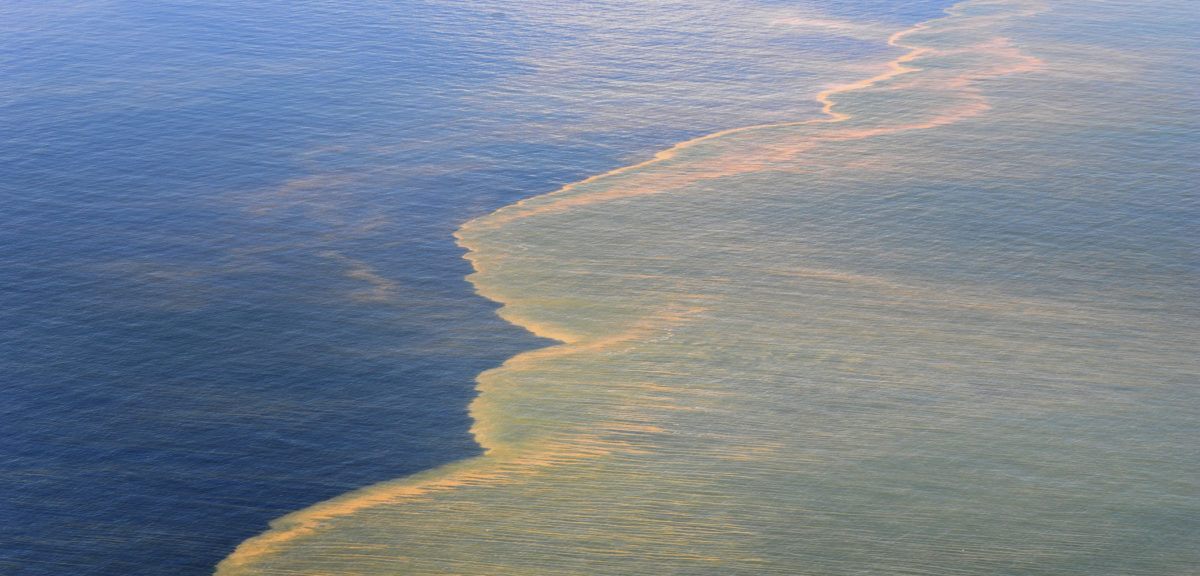A 2003 report by the National Research Council of the National Academies of Sciences estimated that more than 1.3 million metric tons of petroleum make it into the sea each year.

A C-130 Hercules from the Air Force Reserve Command’s 910th Airlift Wing at Youngstown-Warren Air Reserve Station, Ohio, drops an oil-dispersing chemical into the Gulf of Mexico May 5, 2010, as part of the Deepwater Horizon Response effort. (Technical Sergeant Adrian Cadiz/US Air Force)
Among the tools used to lessen the impact of oil spills are chemical dispersants which break up the floating oil into small droplets.
But once the oil is in the water it begins to undergo what scientists call a “weathering process” that makes these chemical dispersants less effective.
A new study published in the American Chemical Society’s journal, Environmental Science & Technology Letters, suggests that sunlight plays a dominant role in this weathering process by altering the oil’s chemical makeup.
It was also found that dispersants were four times less effective on oil exposed to sunlight than oil not subjected to sunlight.
























I am delighted to know about latest scientific experiments/ Inventions.
I am delighted to know about latest scientific experiments/ Inventions through VOA’a science news.